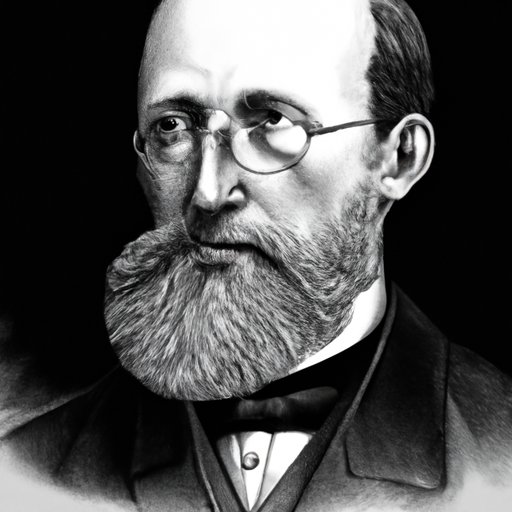Introduction
Gregor Mendel is widely recognized as the Father of Genetics for his groundbreaking research into how traits are passed down through generations. His discoveries laid the groundwork for modern genetics and revolutionized the scientific world’s understanding of heredity. But who was Mendel and what did he contribute to science? This article will explore the life and work of Gregor Mendel, examining his experiments with pea plants and his discovery of the laws of heredity.
Exploring the Life and Work of Gregor Mendel
Gregor Mendel was an Austrian monk born in 1822. He studied philosophy at the University of Vienna before entering a monastery and turning his attention to science. He was particularly interested in the study of heredity and began conducting experiments with pea plants to better understand how traits were passed down from one generation to the next.
Examining Mendel’s Experiments on Pea Plants
Mendel conducted a series of experiments with pea plants to identify patterns in inheritance. He grew more than 28,000 pea plants over eight years, carefully tracking the characteristics of each plant. He tested variables such as flower color, plant height, and seed shape to determine how they were passed down from parent plants to offspring.

The Discovery of Genetics: How Mendel Changed Science
Mendel’s experiments revealed that certain traits were dominant while others were recessive. He concluded that these traits were inherited through the combination of two factors, now known as genes. His discoveries laid the foundation for the field of genetics and changed the way scientists thought about heredity.
Introducing the Laws of Heredity Through Mendel’s Research
Mendel’s research resulted in the discovery of two laws of heredity: the law of segregation and the law of independent assortment. The law of segregation states that when two organisms reproduce, one factor from each organism is randomly passed down to their offspring. The law of independent assortment states that different factors for each trait are passed down independently of one another.
The Legacy of Mendel’s Contributions to Science
Through his experiments with pea plants, Mendel identified patterns in inheritance and established the field of genetics. His work helped scientists understand the role of genes in heredity and refine the field of genetics. Today, Mendel’s discoveries continue to be used in research and have led to new advances in genetic engineering and biotechnology.
Conclusion
Gregor Mendel’s contributions to science were revolutionary. Through his experiments with pea plants, he discovered the laws of heredity and established the field of genetics. His discoveries helped scientists understand the role of genes in heredity and paved the way for new advances in genetic engineering and biotechnology. Mendel’s work continues to be remembered and honored today, making him one of the most influential figures in the history of science.
(Note: Is this article not meeting your expectations? Do you have knowledge or insights to share? Unlock new opportunities and expand your reach by joining our authors team. Click Registration to join us and share your expertise with our readers.)
